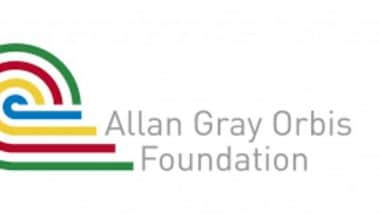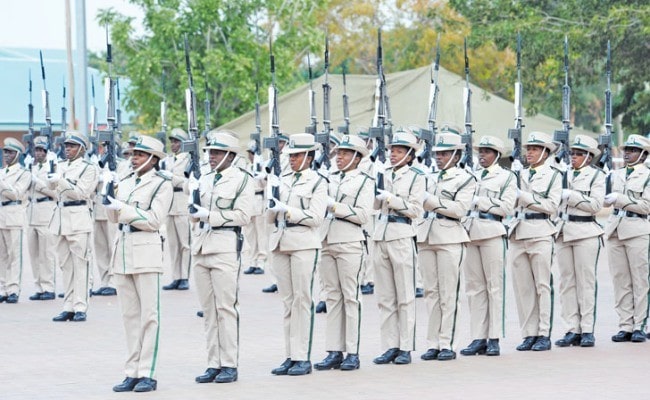Are you a student staying in sub-Saharan Africa? Here, is the Ashinaga Africa initiative to help you. Applicants, especially orphans from sub-Saharan Africa are invited to apply for the 2024 Fully-funded Ashinaga Undergraduate Scholarships for Orphans from sub-Saharan Africa.
Only eligible persons will be considered for this program. And, this article compiles the eligibility criteria and how you can apply to become a beneficiary.
The aim of the scholarship is to contribute to Sub-Saharan Africa’s long-term development by empowering a generation of future leaders.
About the Ashinaga Africa Initiative
The Ashinaga Africa Initiative began in 2014. Its mission is to contribute to Sub-Saharan Africa’s expanding role in global development by increasing access to higher education abroad.
We support orphaned students who are committed to returning home and initiating change, by providing access to full financial support to study at a university abroad (equivalent to an undergraduate degree). Ashinaga support covers tuition, accommodation, travel costs, and other necessary fees.
Ashinaga presents the “Ashinaga Africa Initiative” aiming to provide higher education to 20 brilliant students from Sub-Saharan African countries each year, some of which are among the poorest in the world, and encourages them to become leading professionals in their own countries.
Ashinaga is a Japan-based non-profit organization, which provides educational and emotional support to orphaned students. The organization has supported over 100,000 orphans in the last 54 years, and many of its graduates are actively contributing to society in a variety of fields across the world.
Why Sub-Saharan Africa?
Sub-Saharan Africa is a region of immense vibrancy, innovation, and growth. It has the youngest population of any region, abundant natural resources, and is experiencing rapid economic development.
Even so, Sub-Saharan Africa faces numerous institutional problems that challenge its ability to realize its potential. Moreover, the region has the highest proportion of orphaned youth in the world, many of whom struggle to access education. Ashinaga believes that, when given the opportunity, these orphaned students are capable of academic success and becoming the compassionate leaders that Sub-Saharan Africa needs to excel.
Level/Field of study:
The scholarships are available for pursuing the undergraduate in the courses offered at candidate’s choice higher institution.
Read also if you wish to study outside your home country Simple and Detailed Answers about Applying and Winning a Scholarship.
Host Nationality:
The scholarship is hosted by the Higher institutions outside of Africa, in countries such as Japan, US, UK etc.
Check out other scholarships you can apply for in 2024 to study in Europe, Africa, Asia, America, etc.
If you are an international student and you wish to study in the UK, this is for your Complete Guide to Getting A UK Tier 4 Student Visa For International Students.
Eligible Nationality:
The scholarship is open to international students from sub-Saharan African countries.
Angola, Botswana, Cape Verde, Ethiopia, The Gambia, Ghana, Guinea-Bissau, Kenya, Lesotho, Liberia, Malawi, Mauritius, Mozambique, Namibia, Nigeria, Rwanda, Sierra Leone, Somalia, South Africa, Sudan, Swaziland, Tanzania, Uganda, Zambia, and Zimbabwe
Scholarship Benefits of the Ashinaga Africa initiative 2024
The Ashinaga (100-Year Vision) Scholarship provides a full scholarship that covers the cost of tuition, accommodation (during the terms and vacation), insurance, flight, and provides a monthly stipend which covers food and necessary academic costs.
Scholarship Number of the Ashinaga Africa initiative
The number of offers was not specified
Ashinaga Africa Initiative Eligibility:
The following criteria must be met in order for applicants to be eligible for the scholarship:
- Be an orphan, having lost one or both parents
- Be 23 or younger, having been born after October 1, 1995
- Have graduated high school within the past two years
- Be committed to returning to Sub-Saharan Africa once they have finished their studies abroad
Ashinaga Africa Initiative 2024 Application Procedure:
There are three ways to apply for the Ashinaga Africa Initiative, although the Program prefers online applications or those sent by email. There is no application fee, and you must never pay anyone to apply or to apply on your behalf.
There are three ways to apply for the Ashinaga Africa Initiative, although we prefer online applications or those sent by email. There is no application fee, and you must pay no one to apply or to apply on your behalf.
Please note that if you apply by post, all submitted documents will not be returned to you. Therefore, you must send copies of documents ONLY.
| Online | Post | ||
| Step 1 | Gather all the required documents, except for the application form. | Download the application form when it becomes available | Download the application form when it becomes available or ask for the form from your local Japanese embassy. |
| Step 2 | Scan the required documents in either PDF or JPG format. | Print the application form and fill it out. | Print the application form and fill it out. |
| Step 3 | Apply online once applications open | Scan the completed application form and the other required documents in either PDF or JPG format. | Make photocopies of your completed application form and all other required documents |
| Step 4 | Application complete | Email your scanned documents to: admissions.en@ashinaga.org Use your name and country as the email title. | Send all photocopies to the following address: Ashinaga Africa Initiative Recruitment Team P. O. Box 16864 – Kampala, UGANDA Do not send original documents, copies only. |
| Step 5 | – | Application complete | Application complete |
Required Documents
- Completed application form
- Working email address and telephone number
- Document proving the death of one or both parents, such as a death certificate
- Proof of age, such as a birth certificate, national ID or passport
- Secondary school/high school graduation certificate
- Results from final national exams
- Academic report cards from the last two years of high school/secondary school
- Recommendation letter from a principal or teacher
- A passport-style photo of yourself
- Both essays described below
Essays
Please type/write using a separate sheet of paper. If you choose to handwrite your essays, please write in print and with black ink. Essays written with pencils will not be accepted.
- Essay 1: Please describe how you grew up and experienced losing your parent(s). What challenges have you faced after the loss of your parent(s) and what have you done in order to overcome them? Please write in detail, especially the actions you took to continue and further your education. (Maximum 500 words)
- Essay 2: Please describe the goals you wish to achieve after graduating from a university abroad. Outline how the skills and knowledge you gain from a university degree would help you reach your goals when you return to Sub-Saharan Africa. (Maximum 500 words)
Remember that these essays are personal—they are about you and so should only be written by you. Ashinaga is interested in how you make the most of what is available to you.
You can begin the application and get more details by clicking the Scholarship Link
Application Deadline for Ashinaga Africa Initiative 2024:
The deadline for this scholarship is in February annually, Currently, this scholarship is closed but we shall keep you posted on the new date.
WE ALSO RECOMMEND
- Funded TEG Training Fellowship
- Fully Funded TEACH Sub-Saharan Africa Regional Learning Lab in South Africa
- University of Stirling Masters Scholarships African Students
- University of Toronto MasterCard Foundation Scholars Program, Canada
- Swedish Institute Study Scholarships for Developing Countries
- Africa Prize for Engineering Innovation in Sub-Saharan Africa
- HEC Hungary Scholarships for Pakistani Students
- Edufrica Scholarships for African Students in Africa and Overseas
- West Virginia University Scholarships
DISCLOSURE: This post may contain affiliate links, meaning when you click the links and make a purchase, we receive a commission.






Comments are closed.